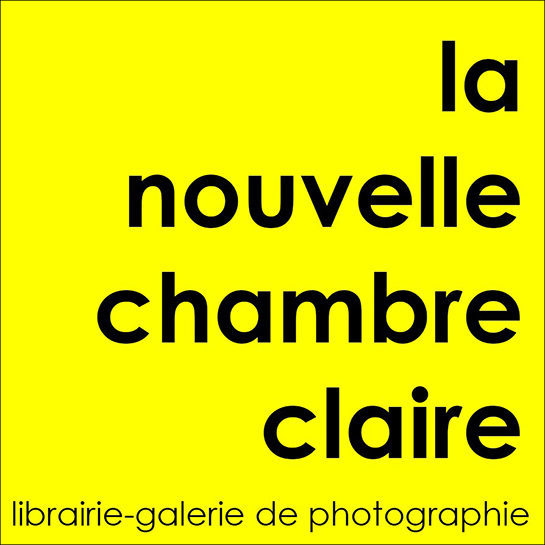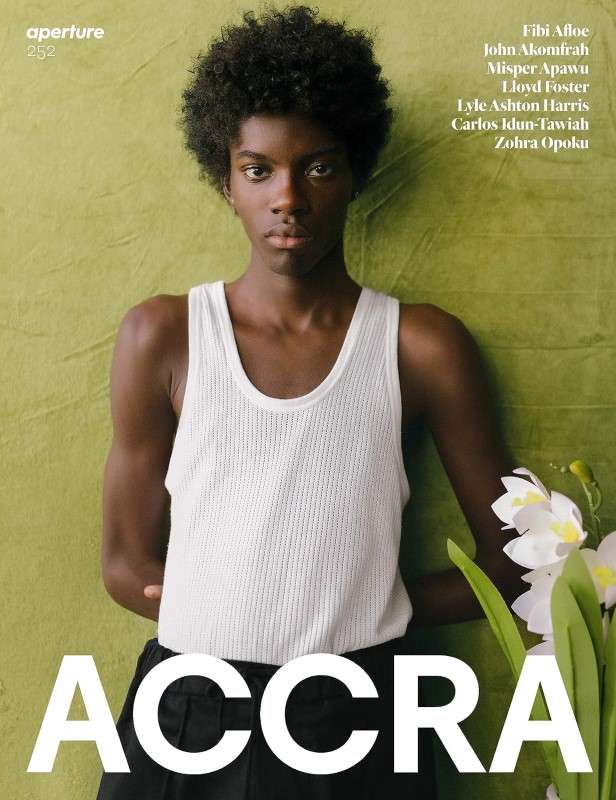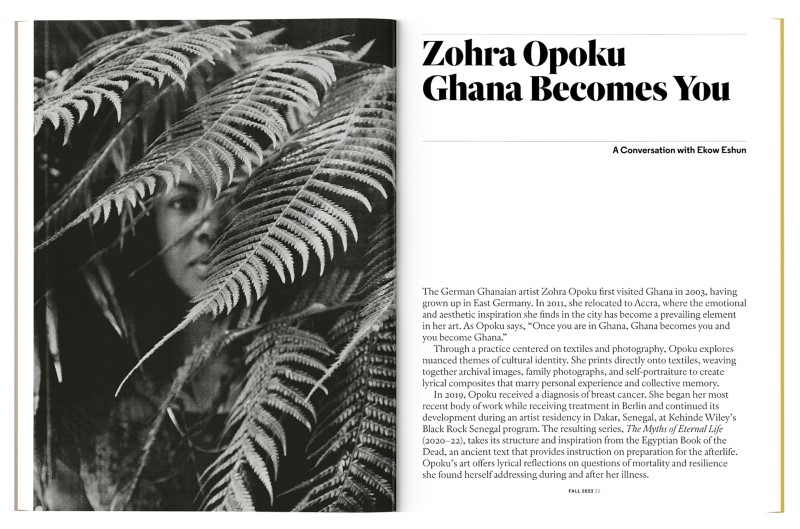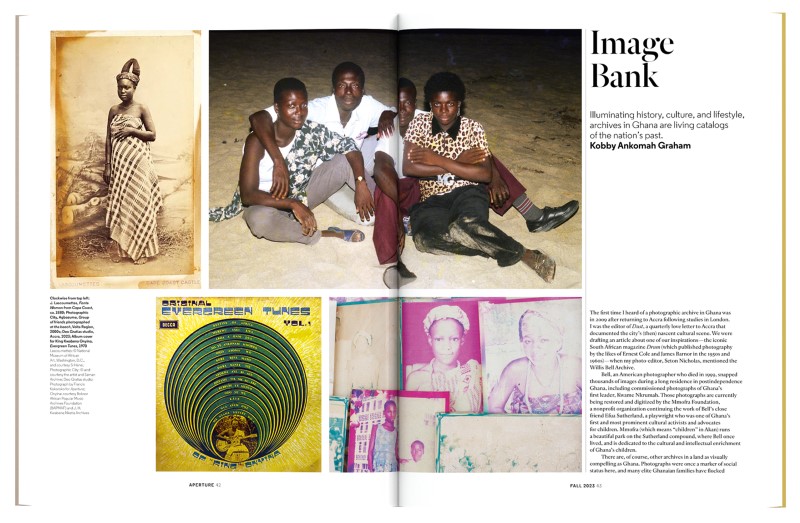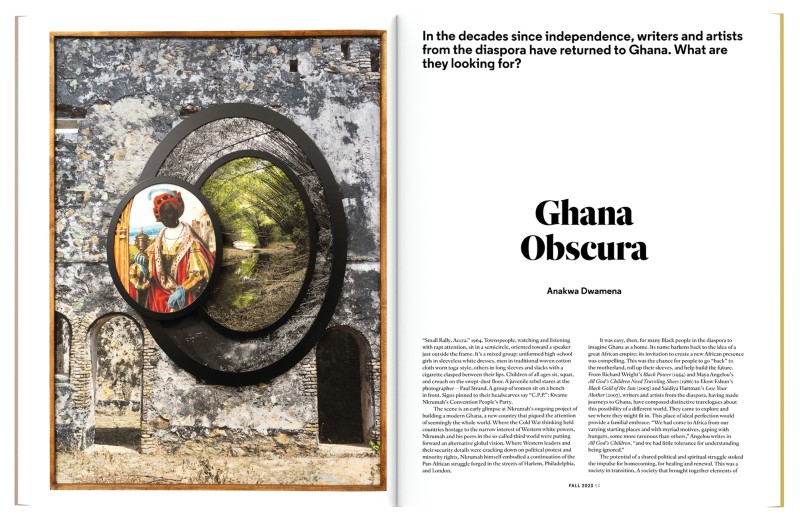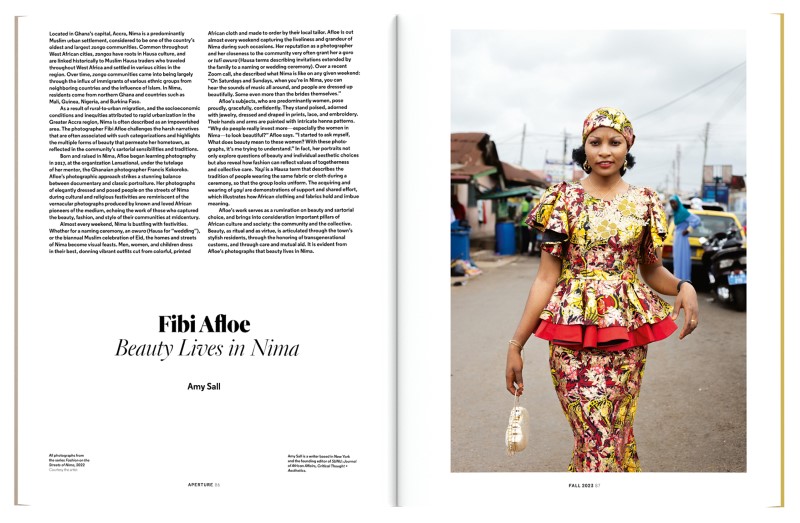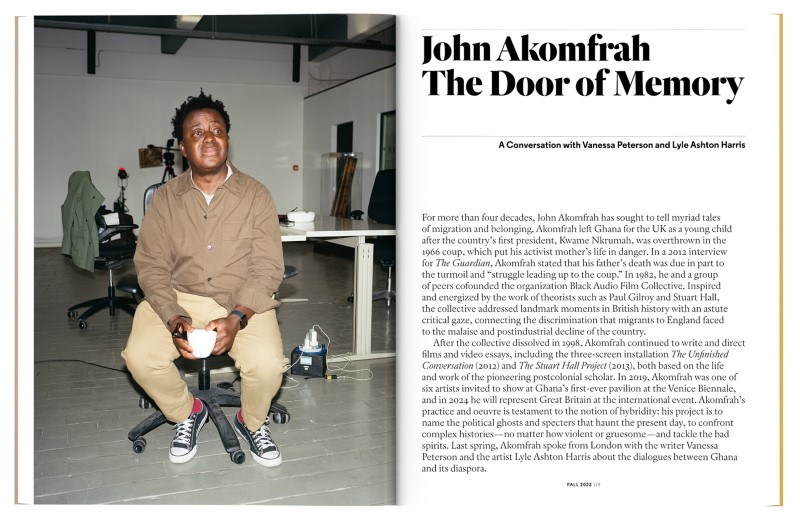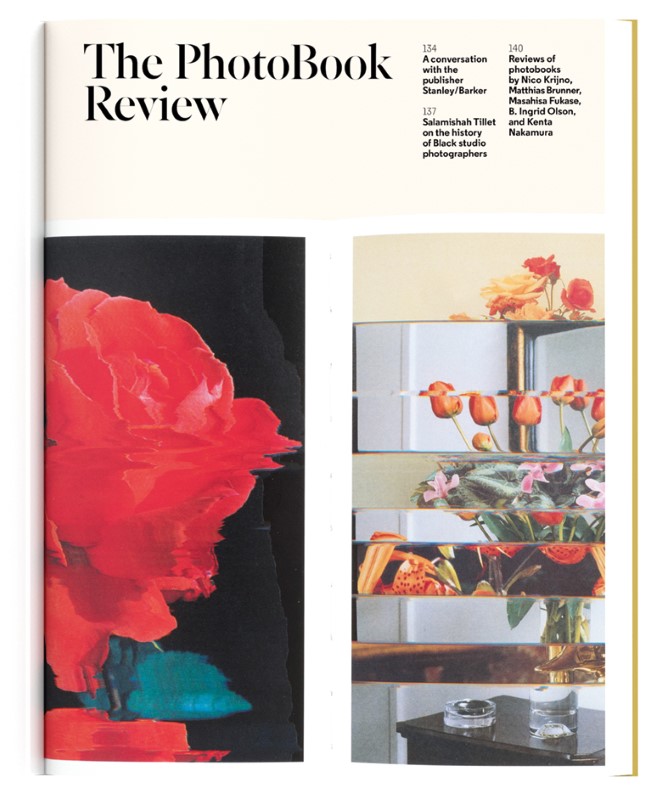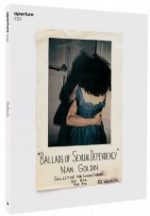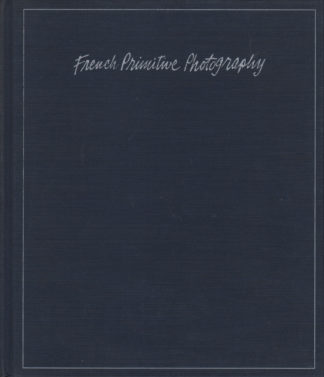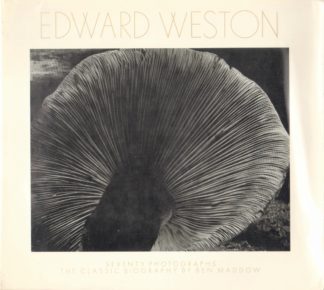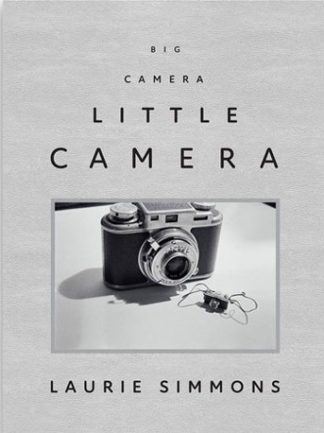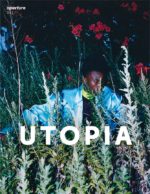« Ce numéro met à nu les complexités actuelles de la représentation, non seulement par la photographie mais aussi par le cinéma, l’architecture et les espaces de rassemblement », explique Mme Harris, qui a vécu à Accra et enseigné pendant sept ans sur le campus ghanéen de l’Université de New York. « Que signifie réunir une multiplicité d’identités dans une même sphère? De quelle façon les idées conflictuelles se frottent-elles les unes contre les autres? »
Le Ghana est un site de photographie captivante depuis la fin du XIXe siècle, depuis les productions du studio photo centenaire de Deo Gratias jusqu’aux visions stylées de James Barnor au milieu du Xxe siècle. Aperture Issue #252 « Accra » propose des entretiens exclusifs avec Zohra Opoku, dont les œuvres sur le textile évoquent la mortalité et la résilience, et John Akomfrah, célèbre cinéaste qui a, tout au long de sa carrière, mis en scène des idées sur le patrimoine et l’appartenance entre le Ghana et le Royaume-Uni, et qui représentera la Grande-Bretagne à la Biennale de Venise 2024. Les photographies de l’artiste de la couverture Carlos Idun-Tawiah, dont le travail est présenté dans un portfolio, seront présentées par Aperture au Armory Show à New York, du 7 au 10 septembre.
« La photographie est un puissant moyen de situer l’histoire », explique Obodai. « Accra » se penche à la fois sur les archives qui cataloguent le passé du Ghana — et le rôle central du pays dans la pensée panafricaine et l’activisme politique — et sur les visions d’une nouvelle génération.
TABLE OF CONTENTS
Agenda
Alfredo Boulton, A Window Suddenly Opens, María Magdalena Campos-Pons, Immersion
Viewfinder
Elizabeth A. Kessler on how the James Webb Space Telescope envisions the cosmos
Timeline
Kim Bell on the afterlife of a nineteenth-century assassin
Dispatches
Tin Htet Paing on the artists working under Myanmar’s oppressive military regime
Curriculum
Mimi Plumb on the Clash, Larry Sultan, and the Mission District in San Francisco
Words
Ghana Becomes You
Zohra Opoku’s evocative reflections on mortality and resilience
A Conversation with Ekow Eshun
Image Bank
The archives illuminating a nation’s past
Kobby Ankomah Graham
Ghana Obscura
For artists and writers, the return to a land where history was made
Anakwa Dwamena
The Correspondent
How Gerald Annan-Forson documented Ghana’s postindependence transformations
Jesse Weaver Shipley
Why We Went Out
The elusive spaces for queer expression
Chiké Frankie Edozien
A Library for the Future
How Paul Ninson built a center for photobooks
Ama Benewaa Tawiah
The Door of Memory
John Akomfrah on telling stories about migration and belonging
A Conversation with Vanessa Peterson and Lyle Ashton Harris
Pictures
The Society
A portrait of Accra’s leadership by Lyle Ashton Harris
Senam Okudzeto
Postbox Ghana
Rediscovering architectural heritage through picture postcards
Kuukuwa O. Manful
Sunday Special
Carlos Idun-Tawiah’s retro-inspired views of youth and style
Nana Oforiatta Ayim
Early Risers
For Kay Kwabia, the poetry of everyday scenes
Lovia Gyarkye
Beauty Lives in Nima
Fibi Afloe highlights the graceful fashion in one Accra neighborhood
Amy Sall
Makola’s Market Queens
Misper Apawu’s portraits of traders and sellers
Nana Ama Agyemang Asante
Double Double
Lloyd Foster’s kinetic photo-sculptures
Nicole Acheampong
Back
The PhotoBook Review
A conversation with the publisher Stanley/Barker, Salamishah Tillet on the history of Black studio photographers—and a selection of recent photobooks
Endnote
Six questions for Kwame Anthony Appiah
“This issue lays bare the current complexities around representation, not only through photography but also film, architecture, and spaces for gathering,” says Harris, who lived in Accra and taught at New York University’s Ghana campus for seven years. “What does it mean to bring a multiplicity of identities into one sphere? In what ways do conflicting ideas rub up against each other?”
Ghana has been a site of compelling photography since the late nineteenth century, from the output of the hundred-year-old Deo Gratias photo studio to the stylish midcentury visions of James Barnor. Aperture Issue #252 “Accra” features exclusive interviews with Zohra Opoku, whose textile-based works evoke mortality and resilience, and John Akomfrah, the celebrated filmmaker who throughout his career has dramatized ideas about heritage and belonging between Ghana and the UK, and who will represent Britain in the 2024 Venice Biennale. Photographs by the cover artist Carlos Idun-Tawiah, whose work is featured in a portfolio, will be presented by Aperture at the Armory Show in New York, September 7–10.
“Photography is a potent medium for situating history,” says Obodai. “Accra” looks both to the archives that catalog Ghana’s past—and the country’s central role in Pan-African thought and political activism—and to the visions of a new generation.
